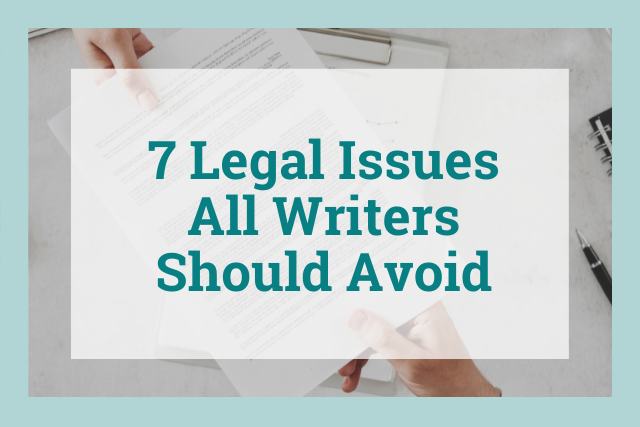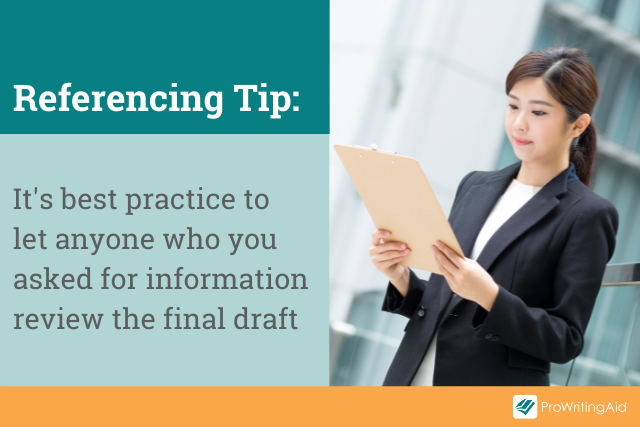
Plenty of writers make it through their entire careers without any legal troubles. But there are plenty out there who don’t. And while we tend to think of the big and the bad suits like defamation and copyright infringement, there are many kinds of legal trouble you can get into regarding your finances or contracts.
Here are 7 tips to protect your career and keep things running smoothly.
1. Avoid Plagiarism
I shouldn’t have to say it, but I do. Do not, under any circumstances, copy someone else’s work and try to pass it off as your own. Doesn’t matter if it’s a book, a blog, or an academic journal; if you didn’t write it, don’t publish it. Familiarize yourself with fair use standards if you’re quoting a source, or someone else’s research, and always make sure that you give credit where credit is due.

If you're working on a project where you could accidentally plagiarise, run your writing through one of ProWritingAid's plagiarism checks. With these, you can check your work against over a billion web-pages, published works, and academic papers to be sure of its originality. Paying for a plagiarism check, well, pays. Free plagiarism checkers often keep and sell your text. With ProWritingAid, your privacy is assured.
Learn more about the ProWritingAid Plagiarism Check.
2. Credit Sources
Even when you’re not using someone’s actual words, it’s important to credit sources for anything. If you’re writing an article for a local newspaper and you use statistics from your local police department, credit the police department. Not only does it protect you from plagiarism accusations, it protects you from some liability if you happen to publish misinformation based on someone else’s information.
3. Credit Anyone that Helps You (If they Want)
Don’t forget your editors, proofreaders, professors, doctors, lawyers, or anyone else that you contacted to help you, even if you’re not copying them directly. If you’ve asked a professor or a doctor for information for a book or article you’re writing, allow them to review the final draft before you publish it, to ensure that you haven’t misquoted or misunderstood anything.

4. Avoid Defamation
If someone can identify your work as having cost them finances, relationships, employment, or reputation, they can sue you. In many cases, they don’t even have to prove that it did, just that it could have been the cause. Many people think that they can protect themselves by changing names and identifying characteristics, but if someone familiar with you or the individual in question can make the connection, it can still be considered defamation.
5. When in Doubt, Make it Fiction
Novels are so much more fun to write anyway. If you want to avoid any legal issues relating to sharing a real-life story or memoir, consider turning it into a work of fiction entirely. This allows you much more room to play with names, locations, descriptors, and any other information that might be used to identify actual people and events. If you want to be certain that it can’t be traced to you, you can even publish your work under a pseudonym.
Check out our guide to fictionalizing your hometown—locations and residents.
6. Copyright Your Content
All artists should be able to protect their work from being stolen and presented by someone else. If you’re publishing a piece that you intend to sell or make money from, make sure that you copyright your work before you publish it. It’s also important to keep your work close, and only let those who must see it have a copy, like editors, proofreaders, and publishers. If anyone else is going to see it, like a beta-reader or friend or family member, have them sign a non-disclosure agreement.
Check out this complete guide to the publishing process with Alliance of Independent Authors, Orna Ross:
7. Ironclad Contracts
One of the best things that you can do to protect yourself is to make sure you have a good attorney to review your contracts. If you’re working with a publisher, they may have all contracts taken care of for you, but it’s still a good idea to have someone review it for you. If you’re working with ghostwriters, editors, proofreaders, printers, or anyone else that is going to handle or help produce your work, it’s important to make sure that all your expectations and responsibilities are detailed in a contract.
Making sure that you protect yourself from potential legal liability is important for a successful writing career. Follow these tips to help you stay on track and avoid trouble.

